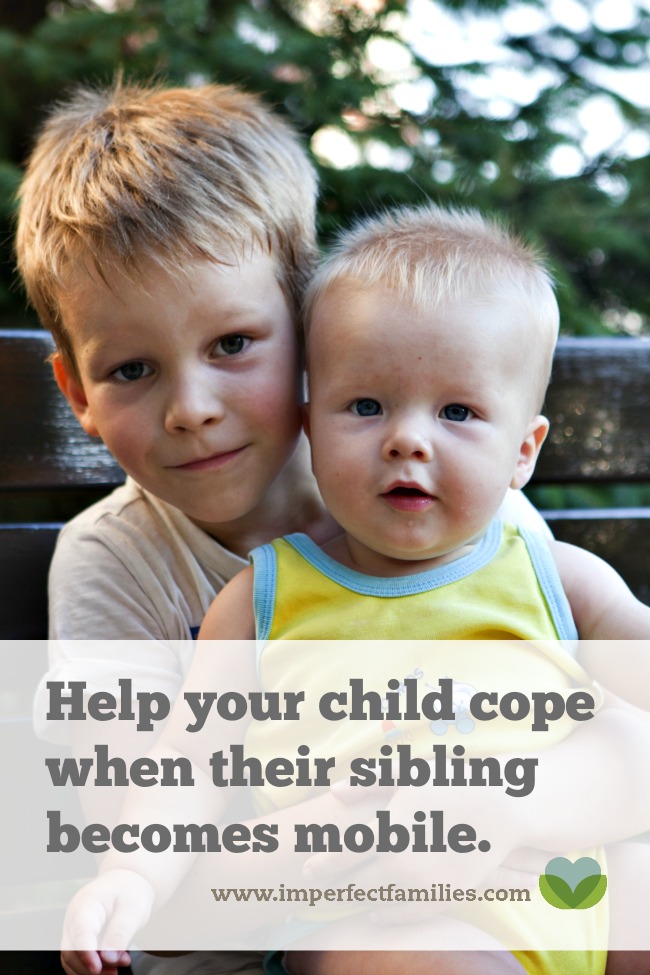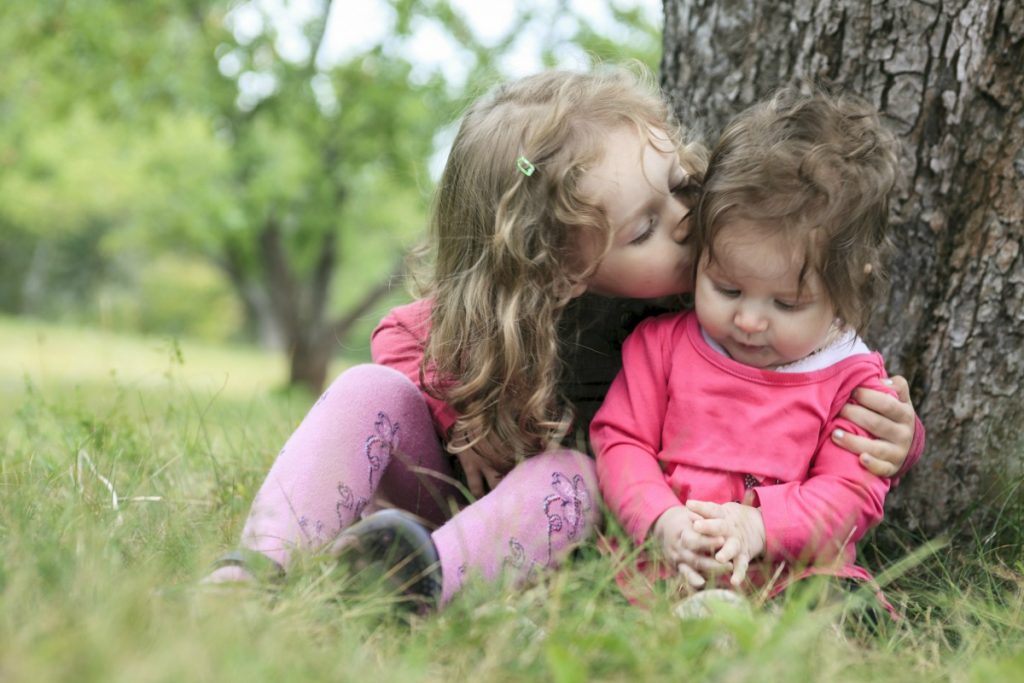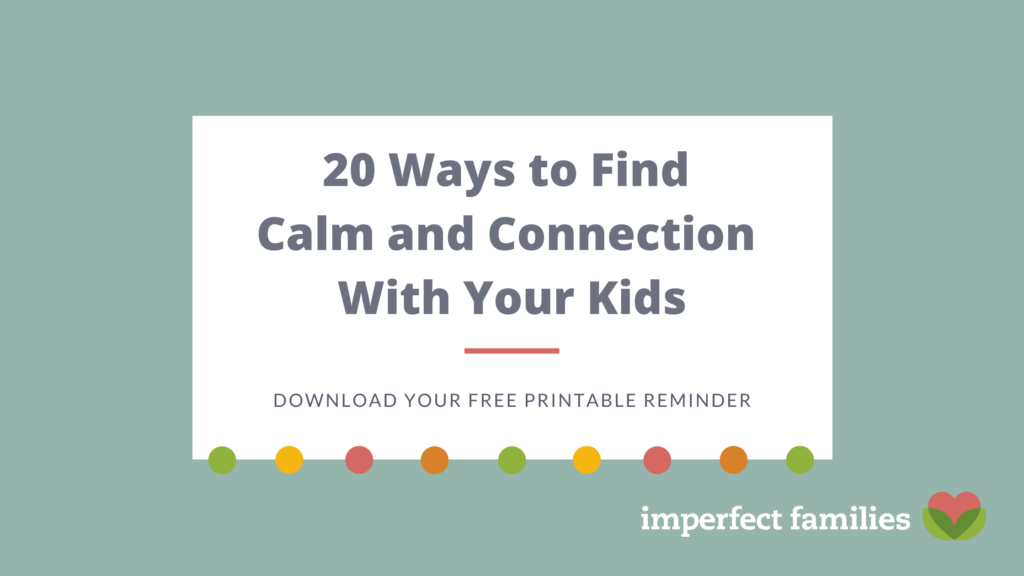
You’ve read the books. You bought the “I’m a big brother” t-shirt. You have a basket of fun activities for him to do while you’re nursing.
You’re prepared to smooth the transition from singleton to sibling once you arrive home from the hospital.
But, a few weeks in, you feel confused.
Didn’t the books say this was going to be a difficult transition? Your older child seems pretty much oblivious to the fact that there’s another kid in the house, and for the most part, life for him hasn’t seemed to change much.
You’re feeling pretty good about the whole sibling thing.
And then, your baby turns 8 months old. Crawling, scooting, pulling up to the coffee table. (You know, the coffee table that used to securely confine your son’s entire collection of matchbox cars.)
Suddenly, everything changes.
Your once oblivious older child is now well aware of their sibling’s abilities, and he doesn’t like it one bit.
Managing the Transition.
An infant on a blanket clasping a rattle is a pretty non-threatening situation for an older sibling. They can play nearby without interruption or worrying about having their toys taken away.
Once the baby becomes mobile, it introduces a whole new set of social and problem-solving challenges that your child may not know how to handle.
Use these tips to prepare and support your children through this phase:
- Talk about what’s to come: Use the early months to start the conversation about how babies learn and grow. Don’t expect your child to be an expert on developmental stages. Give them information ahead of time so they are not surprised that sitting leads to army-crawl, which leads to standing, and eventually walking!
- Talk about what’s normal for babies: Continue the conversation, giving more information about how to talk with their sibling, how to interact with them, and what a baby can and cannot comprehend. Emphasize how your older child can help their sibling learn language and social skills.
- Provide Options: Plan ahead to make a safe place for your older child to store valued toys, art projects, and anything else he wants to keep out of the baby’s reach. Talk about the best place to set up block towers and where he can go if the baby is getting into his space or he needs some time alone.
- Model how to handle conflict: Your presence essential during those transition months. Instead of hoping they will “work it out,” get on the floor and walk through their options – offering a similar toy, offering a BETTER toy, sharing toys, moving to a safe place, asking a parent for help, etc.
- Intervene: With time and practice, your kids can learn strategies to manage difficult situations. However, there are times when you will need to step in. Hitting, biting or screaming may be signs that your child is feeling threatened and doesn’t know how to cope. The situation is too big, they need your help.
- Give both kids a voice: It’s easy to side with one kid over the other – “come on, she’s just a baby! You know better.” Even though the baby cannot talk yet, she’s learning. So it’s important to bring her concerns or needs to the attention of her sibling. And, it’s important to talk about the older sibling’s feelings and needs as well.
- Empathize: It’s not easy to have a sibling. Sharing toys, time and attention is difficult for most children. Put yourself in your child’s shoes and let them know that you get why it’s not always fun to have a little sibling hanging around. Be willing to listen – without judgment – if they have big feelings about their sibling.
- Encourage cooperation: Work to create a strong sibling bond by giving each child a chance to serve and support the other. Have them clean up toys together, comfort each other when they are sad, grab a band-aid when the other is injured, or create a “good-night” ritual to set a strong foundation.
Keep in mind, these conversations and interactions will look different depending on the age of your older child. Very young siblings will need simple language, while older kids may be able to understand and problem solve on a more complex level.
Sounds like a lot of work.
Yeah.
But take a deep breath. This is a process.
Sometimes you may think, “When will you two learn to get along?!”
Then, the next day your older son will sit down with his sibling and build an elaborate block castle together.
And you’ll smile.
There is hope.
How Can I Help?
Not quite sure how this transition is going to go? Or are you way past the baby stage now and feel like there’s no chance your kids will ever get along? Online Parent Coaching is a great way to start off on the right foot…or get back on track with your good parenting intentions!
Remember these tips!
Download your FREE printable reminder of How to Help Your Child Cope when Their Sibling Becomes Mobile, plus you'll also receive weekly parenting tips sent to your inbox from Nicole Schwarz, LMFT & Parent Coach.
By signing up to receive this freebie, you agree to my Disclosure and Privacy Policy.




Comments have been turned off to retain the privacy of all families. If you have a question or comment on the topic, you're always welcome to contact me.